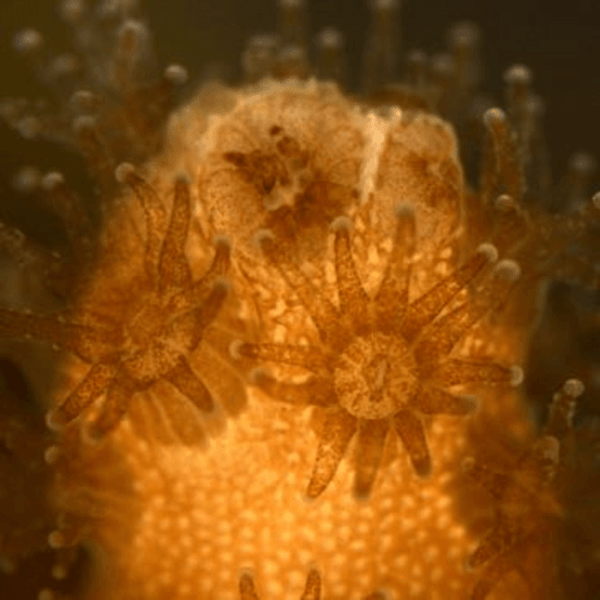A new study led by scientists at the University of Miami (UM) Rosenstiel School of Marine and Atmospheric Science and the Ben Gurion University of the Negev has identified specialized immune cells in the cauliflower coral and starlet sea anemone that can help fight infection. The findings are important to better understand how reef-building corals and other reef animals protect themselves from foreign invaders like bacteria and viruses found in and around coral reefs.
The researchers found that immune cells make up about three percent of the total cell population and that they have at least two populations of immune cells that perform functions unique from digestion.
“These findings are important because they show that corals have the cellular capabilities to fight infection and that they have unique cell types that were previously not known,” said Nikki Traylor-Knowles, an assistant professor of marine biology and ecology at the UM Rosenstiel School and co-senior author of the study.
Read more at: University of Miami Rosenstiel School of Marine & Atmospheric Science
A cauliflower coral (Pocillopora damicornis), one of the species studied to uncover these specialized immune cells. (Photo Credit: Michael Connelly, Ph.D., Cnidarian Immunity Laboratory, University of Miami Rosenstiel School of Marine and Atmospheric Science)


